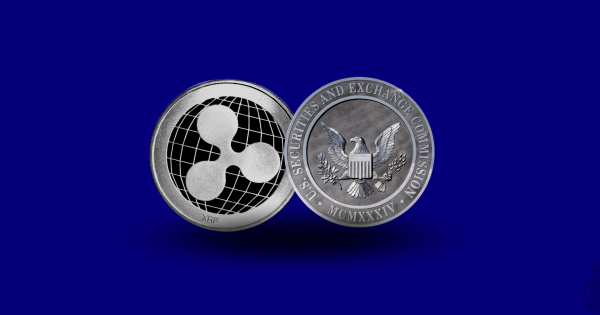Ripple and the SEC are close to resolving their legal battle over the classification of XRP as a security.
The SEC argues that XRP is a security, while Ripple claims it is not solely profit-driven and is influenced by external factors.
The outcome has significant implications for the crypto industry, potentially empowering issuers if Ripple wins or harming the US crypto market if Ripple loses.
Speculation is rife that Ripple, the famous American tech firm responsible for the creation of XRP infrastructure, might be nearing a resolution with the U.S. Securities and Exchange Commission (SEC).
Does XRP Fulfill the Criteria for a Security?
At the heart of this legal battle is the SEC’s contention that Ripple has overseen the distribution of a whopping 14.6 billion units of the cryptocurrency, XRP. Accordingly, the SEC has pressed charges against Ripple, including its CEO, Brad Garlinghouse, and co-founder, Christian Larsen, for not registering XRP as a security – a prerequisite for any public offering and sale of securities. Therefore, the crux of the matter for the court is to determine whether XRP can be classified as a security.
Also Read Ripple Vs. SEC Lawsuit: Attorney Bill Morgan Analyzes The Latest Developments
The Burning Question: Is XRP a Security?
The SEC insists that XRP qualifies as a security due to reasons that are contextually reasonable, but could fall apart if cryptocurrencies are considered in their entirety. Additionally, the SEC suggests that crypto token buyers are likely motivated by expected profits driven by the efforts of the token issuers.
Contrary to the SEC’s stance, Ripple argues that not all XRP buyers are profit-driven, nor are they dependent on the company’s managerial actions. Furthermore, with an open-source design, XRP’s performance can be influenced by countless factors, many outside Ripple’s control.
SEC’s Valid Stance
The SEC’s argument, however, isn’t entirely unfounded. Some crypto tokens indeed aren’t fully decentralized, and information asymmetry does exist. But, these regulatory challenges tailored to traditional securities might inadvertently hinder the growth of revolutionary fintech and indirectly impose a de facto ban on cryptos. Crypto restrictions can also inadvertently propel legitimate businesses towards grey or black markets, posing a risk to financial integrity.
Can This Backfire?
Conversely, a court decision favoring Ripple might also have unintended consequences. Even a slight hint of legal endorsement could be misinterpreted as validating the volatile and potentially exploitable crypto industry. The perceived legitimacy could embolden crypto enthusiasts, thereby threatening financial stability.
Related: Ripple Vs SEC News: Judge Unseals Hinman Documents, Could This Backfire For XRP?
What Are The Stakes?
A triumphant outcome for Ripple could potentially have a domino effect on the cryptocurrency landscape. It might empower other cryptocurrency issuers and inform rulings in similar court cases. Moreover, such a victory would alleviate the strain on other cryptocurrency companies, such as Coinbase, Paxos, Circle, and Kraken.
On the other hand, a loss for Ripple could cast a long shadow over the U.S. crypto industry. The negative implications extend beyond Ripple and XRP. The SEC could potentially impose fines on numerous crypto projects. The US is the largest crypto market in the world, and hampering the adoption and innovation in the country could significantly harm the crypto industry as a whole.
Source: Read Full Article

